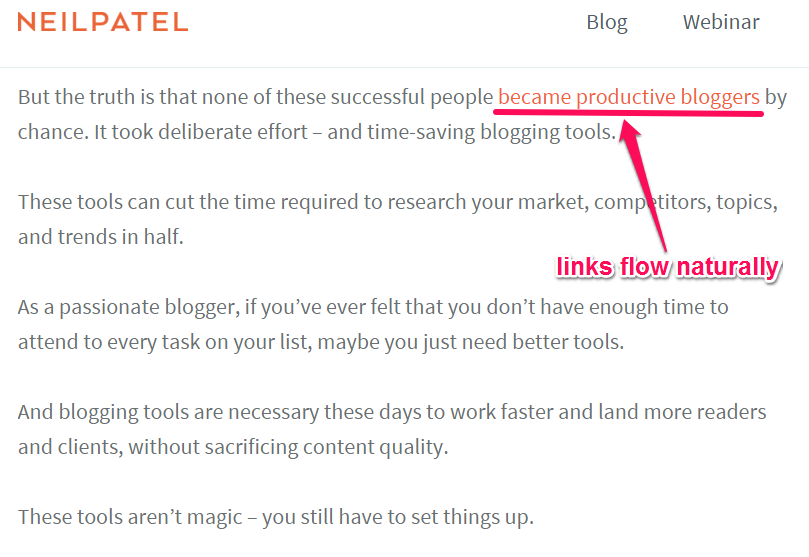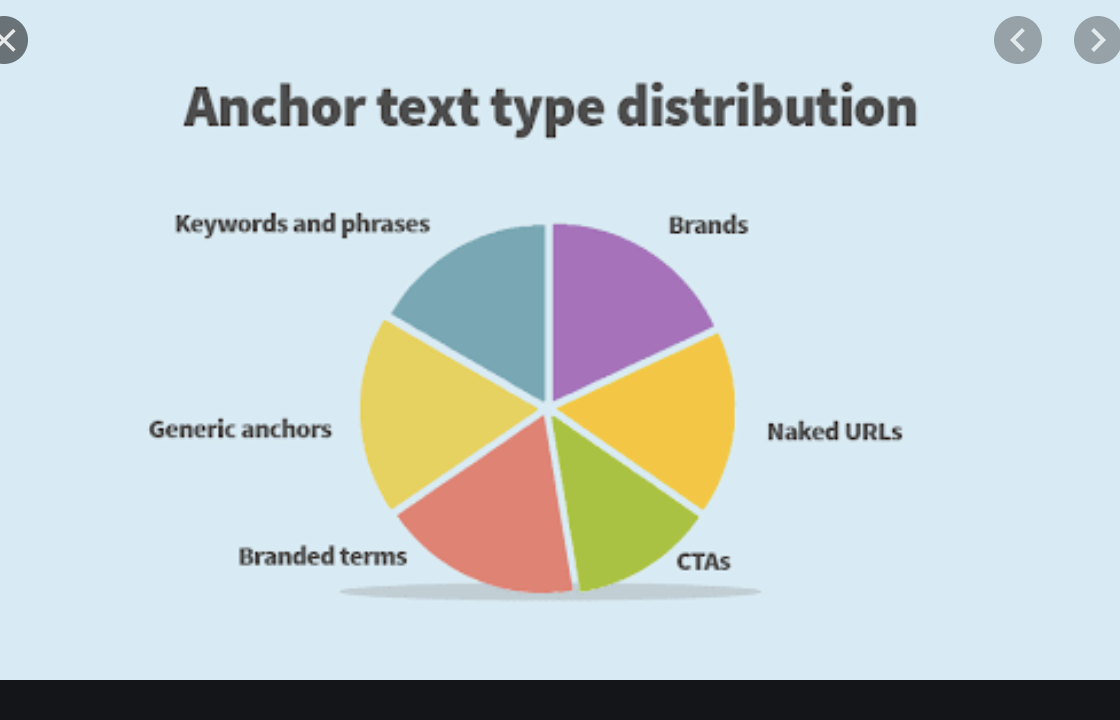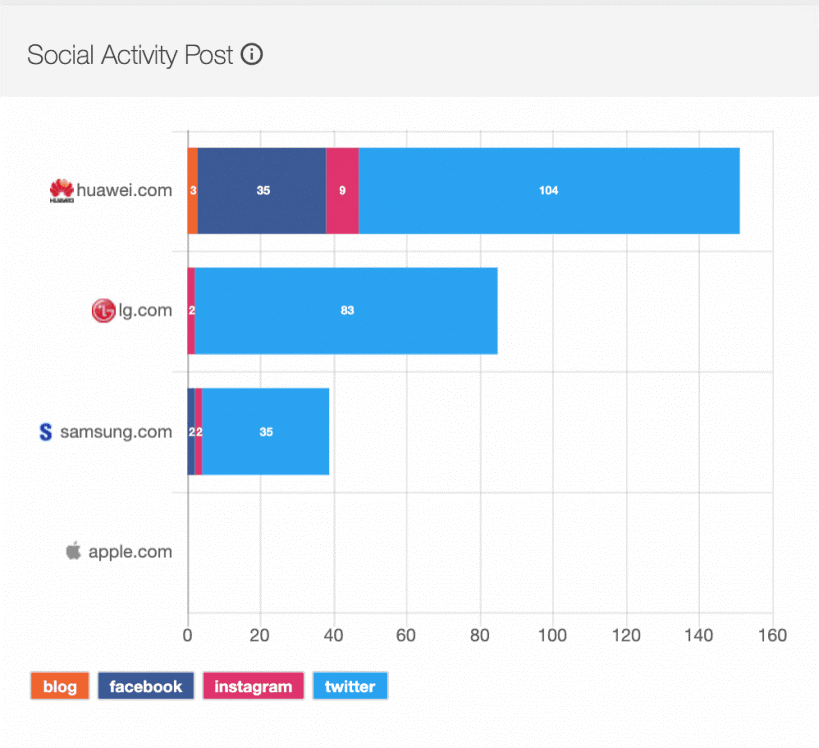So you have a new website. You post great content on your blog. And yet, the number of your views doesn’t go up. This is a great moment to start working on a great marketing strategy. You can start with organic link building.
Why is link building so important? Having backlinks to your pages signals search engines that your content is influential. This makes external links a great way of measuring the quality of your website. Also, thanks to some updates, like Google Penguin, link quality also matters. What does that mean? Let’s explore.
What to Keep in Mind for Organic Link Building
1. Keep It Natural
At some point, the quality of your links was enough to have a high ranking, but this isn’t true anymore. You can’t just buy a bunch of spammy fake links and be done with it. Search engines are smarter than that.
You should try to get natural and organic links at all times. A good strategy is to go for relevant websites in order to get backlinks. By doing this, you also provide quality resources to the readers and expand your audience. Try to integrate your link naturally in a relevant context, so that it also adds value.
2. Be Consistent
Just like we just pointed out, organic link building is all about being natural. Therefore, if the number of your backlinks suddenly spikes up to double its value, this will raise red flags. It would also be suspicious if you suddenly stopped generating external links.
Therefore, a good strategy is to consistently build organic links. Your link velocity should be even and grow steadily.
When you make sure this is happening, search engines can also track your progress and see how the value of your website is improving.
3. Link to Your Pages
You might be tempted to just link to your webpage. It’s the main page and if people want to read more, they can find everything from there. Right? Search engines do not agree.
Linking web pages doesn’t actually add any value to the content itself.
Try to spread out your external links according to the context. You surely have blog posts that fit the content they link to better.
This way, you actually show the audience how great your content is, rather than making them dig through to find out. And, if they like what you’re saying, it’s likely that they will come back to your blog.
4. Vary Your Anchor Text
Search engines have recently begun penalizing websites that have suspicious anchor texts. This is proof that you have little interest in the quality of your content.
You should still have an anchor text that makes your link stand out. But try to blend it into the context. Don’t make it weird.
There are a few types of anchor texts that you should try to use:
- Branded Text
Anchor texts like “Visit <Your Brand Name> to learn more” are valuable for your backlink profile. However, be careful where you use them—they can come off as being very promotional.
- Contextual Fragments
Something like “Using < various anchor texts> is beneficial>” put more emphasis on the content you’re writing, rather than on the link to your page.
- Generic
Using anchor text like “You can read more on <link here>” still puts your link out there. However, they don’t attract attention and oftentimes readers won’t click on the link.
- Naked Text Links
“Read more about the topic at <Your webpage>”— this kind of text looks somewhat unprofessional. It feels like you couldn’t find a suitable context for your link, and you just tossed it out there.
- Semantic Anchor Texts
“How do you make a good <outreach media strategy>?”—these are long-tail keywords, similar to natural speech. You can use this kind of anchor text for variety.
- Hidden Links
“Using <> various anchor texts is beneficial ”— the link is still there, but only search engines can see it. Most of the time this is considered spam though, so you should try to avoid it.
- Image Anchors
This is when, instead of using actual text, you use an image. While they still count, you should avoid these—it’s unlikely that the reader will actually click on the images.
- Keywords
“To find out more, check out our <anchor text guide>”—this is a great way to use keywords in your anchor texts. Just be careful not to overuse them!
- Compound Anchors
“You can see more on <YourBrandName Guide to Anchor Texts> ”— these are a combination of more than one type of anchor text. Mixing and matching more types is a great way to increase variety!
5. Measure the Impact of Your Campaign
This rule is quite straightforward. The perfect outreach media strategy doesn’t exist. You will never know how good your ideas are unless you measure their impact. Why run a campaign if you’re not going to monitor it?
You should track your web traffic. Try to find out if your referrals from Google are improving. Do you know which keywords generate the best responses? These are only a few of the questions that you should answer. By doing this, you can adjust your approach to ensure that your campaign yields the best results. So what parameters should you be looking for?
- Organic Search Traffic
There are many factors that can influence this parameter, and link building is one of them. You should know the starting date of your link building campaign in order to see how it affected your search traffic.
- Referral Traffic
In order to get more referral traffic, you should mix up your link building strategies. Guest posting by itself will yield few referrals. However, when paired with something like content promotion, it can give you better results.
- Traffic on Targeted Pages
When starting a link building campaign, you should have a few pages in mind that should be your focus. Therefore, it’s good to monitor traffic and organic rankings for these pages in particular.
- Domain Authority
This parameter will let you know the level of authority the websites you’re placing external links on have. However, this information is not always precise. You should aim for sites that range from 10-100 DA. Your own authority is going to rise very slowly and this parameter shouldn’t be a primary indicator of your success.
6. Start Guest Blogging
Guest blogging is a great way to gain backlinks. Most brands have their own blog on their website. You should consider this an opportunity to establish your brand as a trusted expert in your niche.
In order for guest posting to be effective, you should try to provide valuable, cornerstone content. If you write impressive blog posts, you present yourself to a whole new audience.
To start guest posting, you need to do some research. Find blogs similar to yours or related to your domain. Then, try to write an article that fits the tone of the blog you’re writing for. This will make readers more open to what you have to say.
You don’t have to go on this journey alone. There are plenty of blogger outreach services that can help you with this!
7. Create Outstanding Content
You should never forget the purpose of your writing. Your content should be valuable and useful to your readers. It should answer questions and be informative. If you always keep that in mind, your audience will react more positively to your content.
For instance, if your website is about PowerPoint templates, you should write blog posts about how to make compelling presentations.
If you have amazing content, it will be easier to build backlinks. People will be more eager to link their website to yours. Writing cornerstone content is probably the most important rule on this list. Without it, all the other steps get significantly harder.
8. Keep Your Content Relevant
In order to do this, you should keep yourself informed. Stay on track of the latest trends and newest technologies. Keep tabs on what people are talking about now. If you’re writing outdated content, why would people read it?
If you talk about the latest news, you have a better chance of getting backlinks. This is especially true if you’re one of the first to write about it.
If people find out about something from your website, they’ll share your blog post. This happens because people tend to make their first source their main one.
9. Consider Press Releases
Press release links are counted by search engines. Additionally, these links can create high-authority backlinks from sites that link to your press release. These are a great way of sharing details about your company and engaging with your audience.
Keeping your customers posted about what your company is doing is beneficial to your business. People are informed about you and your content can generate backlinks. But, if all this sounds intimidating, you can get help obtaining press coverage.
You should keep in mind that press releases used to be an overused and spammed technique for link building. So, to do it right, you should keep some things in mind.
Try to use strong backlinks that direct people to relevant content. This will give your press release more authority and credibility. You can also go to industry influencers or bloggers to distribute your press releases. You can do the same with related news sites. Lastly, you should make the press release available on your website too—this will make people link to your “newsroom” page.
10. Keep an Eye on Your Competitors
There is a system called the skyscraper technique that can help you turn content into great backlinks. It’s pretty simple. You need to do some research—on popular trends or topics in your website’s domain. Afterward, try to find a new way of covering what you find in a slightly different way.
Once you have your content, reach out to other websites that talk about the same thing. You’ll have a high chance of gaining the links you want. This is because you’ve written about topics that are in high demand.
Monitoring your competitors might sound like a lot of work. The good news is that there are plenty of services online that can help you with this. With their help, you can just get a notification every time something significant comes up.
Key Takeaways
You should never overlook link building. It’s one of the greatest ways to obtain a better ranking with search engines. Try to make organic link building a priority in your marketing strategy—it doesn’t cost a penny but it goes a long way.
In order to be successful, you should try and check at least these 10 golden rules. Work your way up, but don’t try too hard. If you don’t keep things natural, you may risk having everything turning against you. Keep your readers in mind and you’ll be set for success!





